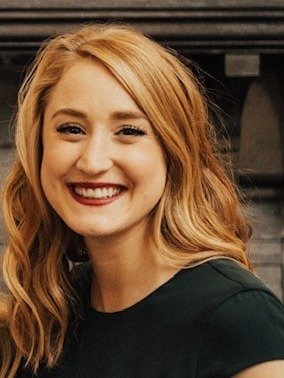JUSTICE AS TRAUMA
Vancouver Convention Centre
March 17-19, 2025
Day 3
Wednesday, March 19
8:00-9:00
Breakfast and Opening Remarks
Main Room 301-305
9:00-10:30
Mental Health, Cognitive Defects, Trauma and Human Rights: A Prison Ombuds’ Perspective
Main Room 301-305
Dr. Ivan Zinger, Correctional Investigator of Canada, will provide an overview of the role and mandate of his Office, focusing on its commitment to promoting human rights within federal corrections. He will offer a detailed analysis of the key characteristics of the federal prison population, emphasizing the significant prevalence of mental health issues, cognitive deficits, and trauma among prisoners. Dr. Zinger will also address the challenges faced by Correctional Service Canada, the agency subject to his Office's independent oversight, in meeting its human rights obligations while managing these complex needs within the correctional system.
Dr. Ivan Zinger
Recognizing & Responding to Your Inner Protector
1:00 - 2:30
Room 224
We all have an inner protector—an inner voice or part of us that shows up when we feel threatened, vulnerable, or unsafe. Often, this part takes on the role of guarding our emotions, protecting us from harm, or even preventing us from experiencing pain. But when unexamined, the protector can become overactive, controlling, or overly critical, causing us to shut down, avoid vulnerability, or keep others at arm’s length.
In this transformative workshop, we’ll explore:
-A deeper understanding of your internal defenses and how they affect your emotions, relationships, and life choices.
-Practical tools and strategies to calm your inner protector when it becomes too overbearing or isolating.
-Techniques for building trust with yourself and others, leading to greater vulnerability and connection.
Through guided exercises, group discussion, and personal reflection, you’ll begin to build a stronger relationship with your inner protector—one that fosters balance, growth, and compassion.
Rebecca Senior
10:30-10:45
Break
10:45-12:00
Panel Discussion
Responding to Justice as Trauma in the Community and Court Room
Main Room 301-305
In this panel, we will explore some of the many ways that people are responding to justice as trauma.
Jordan will discuss the use of Trauma Informed Guidelines during the Ukraine Airlines Flight 752 Liability Trial. Rebecca will talk about the Kenora Justice Centre, which strives to address the overrepresentation of Indigenous youth and young adults (12-24) in the criminal justice system. Aonghus will talk about the importance of trauma-informed systemic interventions to those that were denied familial interventions at crucial stages of their young lives. Charmaine will explore, from a policing perspective, how silent bonds from shared trauma can foster healing, resilience, and collective strength. Jen will discuss prioritizing healing over punishment, as an Army veteran and police officer, and the transformative potential of psychedelic-assisted therapy.
Together, we will examine how trauma-informed approaches can reshape justice systems and ourselves, shifting to an emphasis on compassion, resilience, and long-term community well-being. This session will be hosted by Myrna McCallum.
Charmaine Parenteau
Cpl. Jennifer Demers
Jordan Assaraf
1:00 - 2:30
Workshops
(Choose One)
The Resilience Toolkit: Foundations for Trauma Healing & Liberatory Change
Main Room 301-305
Experience this unique approach to resilience building that fosters the flexible strength and increased capacity needed to overcome adversity, heal, and change systems of oppression and inequity into places where we thrive. Through focused lecture, personal reflection, and experiential practice, we will decode the language of the body by identifying stress and trauma responses in an intersectional and ecologically sensitive framework. Together we will practice real-time regulation tools that harness the body’s innate biology to settle overactive and detrimental responses—reclaiming energy, creative flexibility, and connection to ourselves, one another, and our shared liberation.
1:00 - 2:30
The Seven Grandfather Teachings as Your Guide
Room 220-222
The 7 Grandfather Teachings carry timeless wisdom that guides us toward a life of integrity, respect, and harmony. Each teaching - Wisdom, Love, Respect, Courage, Honesty, Humility, and Truth - serves as a foundational principle for personal growth and community connection.
Asha delves into the significance of each teaching, sharing stories and lessons from her own life and the lives of those she has encountered. She emphasizes how these principles can be applied in today’s world to foster deeper relationships, enhance emotional well-being, and create a more compassionate society.
Through engaging anecdotes and reflective exercises, Asha encourages participants to internalize these teachings, prompting them to examine their own values and actions. By highlighting the interconnectedness of all beings and the importance of living in alignment with these teachings, she inspires a journey toward healing and self-discovery.
Core Values & The Medicine Wheel
1:00 - 2:30
Practice Room 306
Join Ally Hrbachek, a Plains Cree woman from Treaty 6 Territory, in a workshop that invites you to finally care for yourself in the way you deserve. Guided by the teachings of the Medicine Wheel, we will explore the four core values that help bring balance to our mind, body, spirit, and emotions. Through storytelling, reflection, and cultural teachings, you will be supported in re-aligning your values and reconnecting with yourself in a way that nurtures your whole being. Come as you are, and leave feeling grounded, empowered, and more in tune with the medicine that lives within you.
Nkem Ndefo
Asha Frost
Heather Hart
Ally Hrbachek
12:00-1:00
Lunch
2:30-2:45
Break
2:45-3:30
Closing Keynote
Becoming Whole: The Journey of Healing Collective Trauma
Main Room 301-305
In this compelling keynote, we will explore how trauma cascades through individuals, communities, and societies, and examine why conventional approaches to healing often fall short. Moving beyond theory, we will unpack a practical framework for trauma recovery that begins with stabilization and progresses through meaningful confrontation with difficult truths and experiences. Learn how this careful progression enables us to transform wounds into wisdom, building the capacity to feel deeply while maintaining connection to ourselves and each other. This session illuminates a path of individual and collective trauma healing, offering insight into how we might create systems and communities rooted in justice and flourishing in joy.
Nkem Ndefo
3:30-4:00
Farewell Remarks & Group Activity
Aonghus McCarthy










